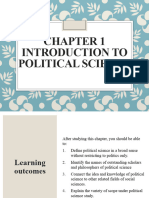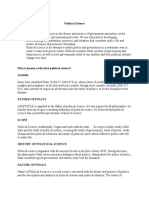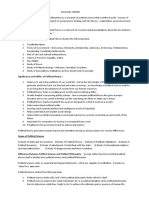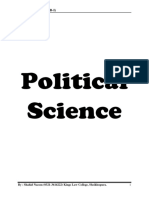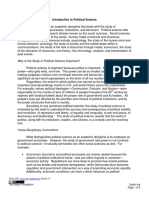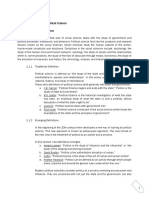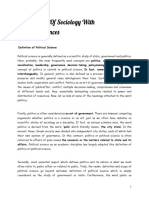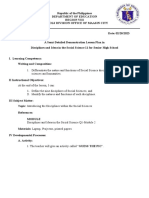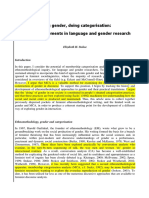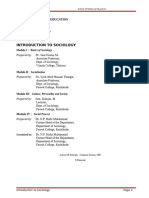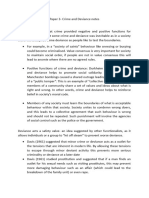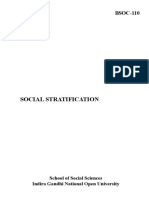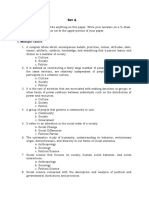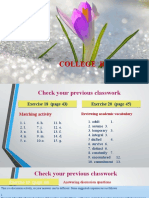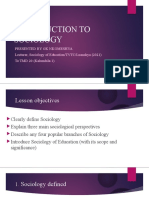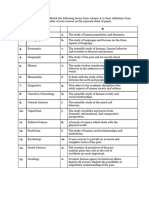0% found this document useful (0 votes)
9 views18 pagesLecture+1 Introduction
The document outlines the course structure for 'Introduction to Political Science' (POL 101) taught by Professor Nurul Huda Sakib at Jahangirnagar University. It includes an introduction to political science, its definitions, scope, and differences from other disciplines, along with assessment strategies and rules for assignments. The course encourages students to engage with current political issues and emphasizes the importance of political science in understanding societal dynamics.
Uploaded by
mahira.malihaCopyright
© © All Rights Reserved
We take content rights seriously. If you suspect this is your content, claim it here.
Available Formats
Download as PPTX, PDF, TXT or read online on Scribd
0% found this document useful (0 votes)
9 views18 pagesLecture+1 Introduction
The document outlines the course structure for 'Introduction to Political Science' (POL 101) taught by Professor Nurul Huda Sakib at Jahangirnagar University. It includes an introduction to political science, its definitions, scope, and differences from other disciplines, along with assessment strategies and rules for assignments. The course encourages students to engage with current political issues and emphasizes the importance of political science in understanding societal dynamics.
Uploaded by
mahira.malihaCopyright
© © All Rights Reserved
We take content rights seriously. If you suspect this is your content, claim it here.
Available Formats
Download as PPTX, PDF, TXT or read online on Scribd
/ 18


